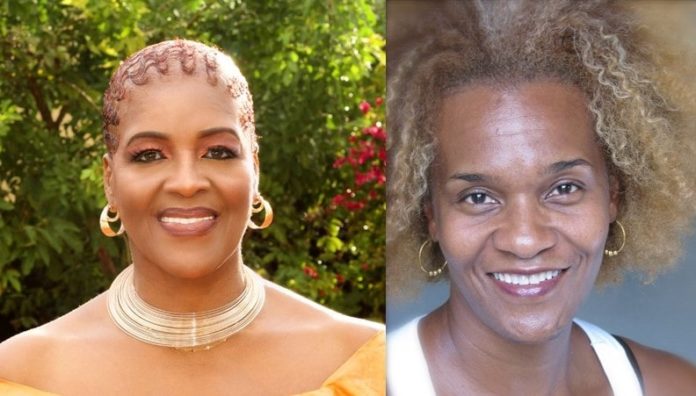|
Getting your Trinity Audio player ready...
|
Dance is an integral part of most cultures as a form of expression, storytelling, and entertainment. In fact, no culture invigorates itself with as much dance as the African culture and its diaspora. Every step embodies a different social tradition, lesson, or story.

On October 9th, Michelle Grant-Murray, Deering Estate’s Artist-in-Residence, will be hosting her annual The Black Artist Talk at the Visitor Center Theater in Deering Estate to discuss the very role of transnational dance works and practices that evoke revolutionary kinship. Alongside her will be Professor of English and African Studies, Dr. Carole Boyce-Davies.
Essentially, dance works bring communities together, past the concept of family bloodlines. These moves have survived years of migration and evolution, and still manage to tell the same story they did when they were first created. Due to their everlasting nature, people continue to feel inspired by these dance works, creating a connection between them and their culture.
The Black Artist Talk is dedicated to creating engaging conversations with Black artists surrounding all sorts of topics, including current events, the arts, and social justice. This event is here to do the same under the guidance of these two women. Grant-Murray is an experienced choreographer and performer who has felt firsthand the impacts of transnational dance and Boyce-Davies has researched and written about African culture and diaspora her entire career.
Here is an interview with Michelle Grant-Murray and Dr. Carole Boyce-Davies. They discuss some of the topics they will be exploring and their importance in the black community.
Q: What do you hope that guests gain from this Black Artist Talk in comparison to the ones that have been hosted in the past?
A: (Grant-Murray) We are lifelong learners and constantly evolving. Each Black Artists Talk is centered around diverse conversations that explore the beautiful and complex nature of Black Artists. The explorations range from pedagogy, ecology, sustainability, spirituality, academia, film, music, food, self-care, wealth, economics, visual art, and dance. The 2021 Deering Estate Black Artists Talk, T.W.E.R.K.is a conversation that centers transnational artistic dance works and movement practices that bridge and generate kinship.
Q: What are transnational dance works and what is their significance?
A: (Grant-Murray) Transnational dance works are African Diaspora embodied movement practices that have crossed the oceans, and survived for thousands of years. These transnational-embodied dance forms of the African Diaspora inform and serve as the foundation for sacred and secular dance practices across the world.
Q: As a dancer yourself, how have these transnational dance works affected you?
A: (Grant-Murray) As a Dance Educator, there is a constant search and deconstruction of dance as embodied knowledge. The continuum of dialogue reveals the origin, foundation, creativity, and innovation of dance history as a revolutionary construct that uncovers and decolonizes the movement of the body as a source of being, understanding, and knowing. Dance ethnography, a term generated by anthropologist, dancer, choreographer, writer, and social justice activist, Katherine Dunham, is the study of people centered around the corporeality of the body. This includes historical connections and the natural movement system of the body, as well as the form and functionality of movement. This process of investigating dance from a transnational lens allows me to explore the root of movement systems from a cultural and philosophical perspective, taking a closer look at movement origin, form, and functionality. This is empowering knowledge that provides innovation, and creativity.
Q: In your opinion, how have these dance works played a role in the Black community and culture?
A: (Boyce-Davies) Black dance and with it music and storytelling have been the primary grounding mechanisms that provided the stabilizing centers for the Black experience. They have documented histories, agricultural and farming practices, migrations and urban experience, and above all the control of the body and the joy that gives Black cultures their transcendence over painful experiences.
Q: What are you most excited to discuss regarding the dances and revolutionary kinship ties?
A: (Boyce-Davies) The continuities and borrowings across the Black world. African Dance histories were reinterpreted and/or combined across the Americas with Western forms which ended in creating different and new hybrid forms. As these made their way into dominant or mainstream culture, choreographies from seasoned or skilled artists end up infusing popular culture.
Q: In relation to the dance works, what do you consider a revolutionary kinship to be?
A: (Boyce-Davies) An acceptance of family in its extended sense beyond “bloodlines” so that one is not locked into narrow Western bourgeois options. It also suggests a commitment to transformative cultural practice and therefore finding kinship with those who share similar ideological practices.
Join the Black Artist Talk on Saturday, October 9th from 2 to 4 PM for an intellectually stimulating conversation regarding culture and dance. The event will be free and open to the public, but seating is limited. RSVP online required.
Valeria is a junior at Doral Academy Charter High School. She is currently a Junior Ambassador for Miami Waterkeeper and a Deering Estate intern.






